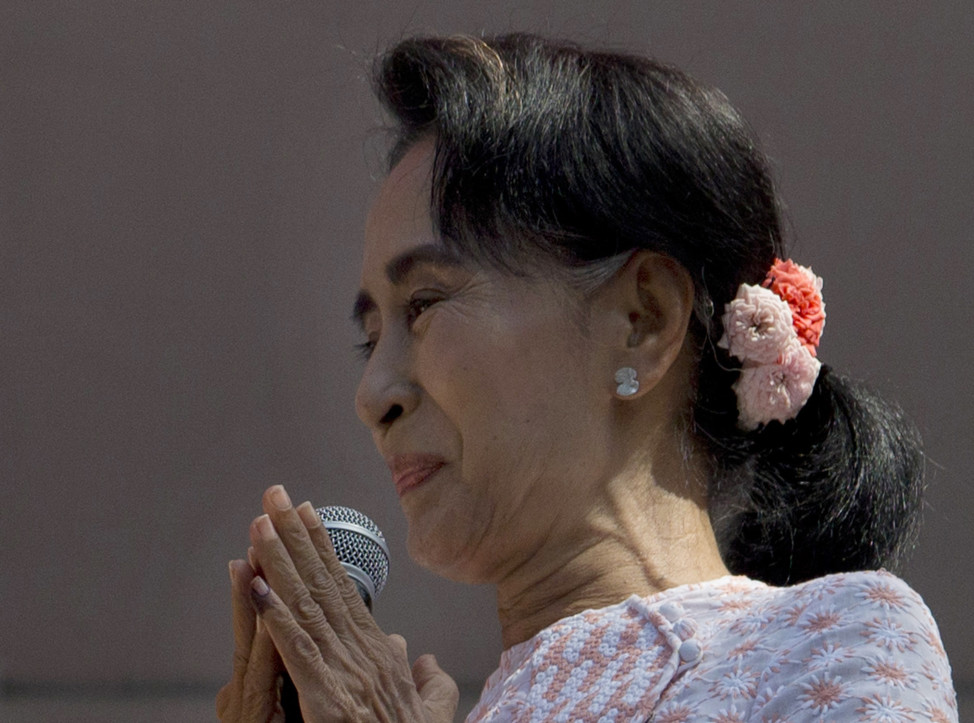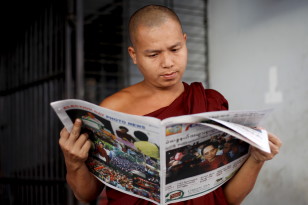Can Myanmar’s New Government Control Its Military?
Jon Emont – The New Yorker
…These long-awaited elections came with a major catch. The 2008 constitution, which contains a number of starkly anti-democratic provisions, will remain in place. Politicians whose children or spouses possess foreign citizenship are barred from the Presidency, so Suu Kyi, whose children have British citizenship, cannot assume the executive office. The most powerful bureaucracies—Home Affairs, Border Affairs, and Military Affairs—will remain under military control, and their budgets will remain above civilian scrutiny, regardless of which party controls the government.
The constitution is designed to be impossible to change without the military’s buy-in: twenty-five per cent of seats in parliament are reserved for military officers, while more than seventy-five per cent of Parliament is needed to approve changes to the constitution. A vaguely worded clause also empowers the military to re-impose military rule if it judges the country to be on the verge of disorder. “It’s a coup mechanism in waiting,” Phil Robertson, the deputy director of Human Rights Watch’s Asia division, told me.

Burma’s opposition leader Aung San Suu Kyi, with ink still imprinted on the little finger of her left hand after voting yesterday, prepares to deliver a speech from a balcony of the NLD headquarters in Yangon on Nov. 9, 2015. (AP)
Strange Bedfellows in Burmese Politics
Gwynne Dyer – Edmonton Journal
There are good generals in Myanmar — that is, generals who are not too corrupt, not too brutal and not absolutely determined to maintain military control of the country forever. One such general is Thura Shwe Mann.
Something happened to Shwe Mann on the way to this election. Maybe it was just the realization that he might end up as president if he played his cards rights, but he certainly talks differently these days: “Now we are in a democracy, a different form of government that requires total dedication … Our people are living below the poverty line. We have to change everything.”
That’s also what Suu Kyi wants to do: change everything….
But if Suu Kyi and Shwe Mann form a coalition… that coalition could elect a new president and form a government. The president would have to be Shwe Mann for constitutional reasons, but Suu Kyi could be the most powerful member of his cabinet, which would be loaded with NLD members. Not a marriage made in heaven, perhaps, but much better than an anti-democratic coup by a panicked military.
White House spokesman commends Burma on general election:
Why We Shouldn’t Expect Too Much From Myanmar’s Elections
Richard Cockett – Foreign Policy
However well-conducted these elections are, they won’t mark the sort of transformational moment many expect. For they will be conducted entirely on terms set by the quasi-military government, ensuring that however much the votes stack up against it, it will still retain a lock on power.
Most obviously, under the constitution introduced by former dictator Than Shwe in 2008, a quarter of the members of the lower house of parliament (166 of them) are appointed directly by the head of the armed forces, rather than being elected.
As the votes of more than three-quarters of legislators are needed to change the constitution, the military-designed constitution will likely remain in place for some time, no matter how well the NLD and other smaller opposition parties perform….
Furthermore, and more controversially, the constitution specifically prevents Aung San Suu Kyi from standing for president, since it bars anyone from that office whose spouse or children are foreign citizens. Suu Kyi’s late husband, Michael Aris, was a British academic, while her two sons were born in Britain and hold UK passports.


